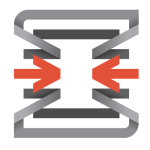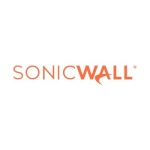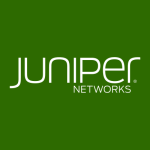What is our primary use case?
Our primary use cases for Check Point NGFW are for perimeter security and content filtering for browsing behavior.
How has it helped my organization?
We have a lot of flexibility now and a leg up identifying zero day threats. We have multiple ways of doing policies now that we didn't have before. The options are more robust over previous products and I would say that we're pleased with the product. The reports I'm getting are that we're satisfied, even impressed, with the options Check Point offers.
What is most valuable?
Packet inspections have been a strong point. Our Identity Collectors have also been helpful. In many ways, Check Point has been a step up from our SonicWalls that we had in-house before that. There's a lot of additional flexibility that we didn't have before.
We saw a noticeable performance hit using SonicWalls. Whether it's because we've provisioned the Check Point gateways correctly from a hardware standpoint or whether it's the software that is much more efficient (or both), we do packet inspection with very little impact to hardware resources and throughput speeds are much improved.
With SonicWall, after it would calculate inspection overhead, we might see throughput at, and often below, 15%. My network administrator gave me data showing Check Point hovering at 50%, and so we were actually seeing Check Point fulfill its claims better than SonicWall.
What needs improvement?
Because there's quite a bit of flexibility in Check Point, improved best practices would be helpful. There might be six ways to do something and we're looking for one recommended way, one best practice, or maybe even a couple of best practices. A lot of times we're trying to figure out what we should do and how we should handle a particular problem or scenario. Having a better roadmap would help us as we navigate the options.
The VPN setup could be simplified. We had to engage professional services for that. That's not a problem, but compared to other products we've used, it was a little more complex.
For how long have I used the solution?
We started putting Check Point NGFW into production late first quarter this year, right before the pandemic hit. We put in two gateways and one management server.
What do I think about the stability of the solution?
Stability is there especially compared to previous security products. Certain things had quirky behaviors. For instance, once we upgraded to 80.40, a couple items inexplicably acted up (not uncommon for any software upgrade). Certain policies would drop and then show up again (remained in force, just briefly disappeared from management console). I would have to get some specifics from my network administrator, but I do recall some strange behaviors. One of them was fixed by a patch and another one still has a backup issue that's pending right now about how to best back up the device before we upgrade.
What do I think about the scalability of the solution?
I haven't had to test scalability yet because we purchased it for our existing needs and as a company, our performance and our needs are pretty flat. We don't really have need to scale yet.
We are adequately equipped for what we need and we have room to grow and to add all of our users and possibly add additional products down the road and still have plenty of room to do so on how these gateways are powered.
We have a total of about 620 employees that use Check Point NGFW. I would say we are 80% there. There are still some users that have to be migrated to it once we test their accounts, their kiosks, that kind of stuff.
There is one primary employee who is dedicated to maintenance and there are another two who back him up but our network administrator is primarily responsible.
How are customer service and technical support?
Mixed experience, mostly satisfactory. Some support engineers are quite helpful and efficient, others required more patience working through support incidents. ATAM support has been high quality, and as previously mentioned, local support has been key to resolving some cases much more quickly. If we were giving their support a letter grade, it would be in the B range.
Which solution did I use previously and why did I switch?
We were previously using SonicWall. We switched because we were struggling with performance, support, and strategy. There were things that were broken that did not have coherent or reliable fixes. At the time we did not consider it to be next-generation technology. There were problems with GeoIP enforcement. There were also quite a few performance problems, especially with inspecting traffic. It would literally bring the device to its knees once we turned on all the inspections that we really felt that we needed. It was under-provisioned, under-specced, and coupled with all the support problems we had, we started shopping for a new solution.
How was the initial setup?
The setup was both straightforward and complex. There were some complexities in there that required us to get help. We have some local representatives that are very helpful and so we frequently contacted them for guidance.
We're still migrating people behind Check Point, especially in our main facility, but the heavy lifting was done by early summer. It took around three to four months.
Our strategy was to set it up in parallel with the existing firewalls and begin setting up policies and testing the policies against individual services in-house. Then, as we were successful, we would grab pilot users and migrate them to Check Point and have them start trying to break things or browse to certain sites and see what behaviors they were getting.
It was a slow migration with a handful of people at first. We tweaked their experiences and just kept adding people. It was gradual. We tested, fixed, and then migrated a few more incrementally.
What about the implementation team?
We had two different ways of getting help. We have local representatives who are in the same metropolitan area and they were very responsive. Then when we would have to contact standard support. We were satisfied about 80% of the time. Sometimes follow-up was not there. Sometimes there would be delays and occasionally there would be rehashing of information that didn't seem like it was efficient. Eventually, we would get the answers we would need.
That's why we rely heavily on the local people because they could sometimes light a fire and get things moving a little bit quicker.
What was our ROI?
Primarily it's offered stability and caught behaviors and given users (and administrators) a level of confidence as they are doing their daily jobs. The inspection that Check Point does, even when we download a document or a PDF, offers a bit more peace of mind in those types of transactions. GeoIP is working like we had hoped compared to SonicWall.
We have a lot of granularity in our policies. We can accommodate some really interesting scenarios on our operations floors, certain groups needing certain types of access versus other groups. We're accommodating them fairly seamlessly from migrating from SonicWall to Check Point. We might have struggled to try to make stuff happen in SonicWall, and Check Point just seems to ingest it and run with it. Having access to Check Point's AI ThreatCloud cloud has given us a lot of peace of mind. ThreatCloud is 25+ years worth of exploit research that informs and feeds CP technologies and gateways.
Another feature that's been helpful is the sandbox feature. A lot of companies offer this type of thing now, but CP has been offering it for quite a while. If end users are browsing websites, and they download a payload-infected document from a website, SandBlast will detect it and take it offline. It will sandbox it, detonate it there safely, pull out the content that we're actually looking for, then re-present that cleaned content back to the user.
What's my experience with pricing, setup cost, and licensing?
Strongly consider augmenting standard support with Check Point's premium option or by purchasing ATAM/professional services time blocks, especially during deployment.
Standard support is decent, though occasionally frustrating from a turnaround perspective. While we sometimes wait a while for resolution on some cases, the information we receive is usually quality; that's been our experience.
Which other solutions did I evaluate?
We looked at Palo Alto, Fortinet, and Sophos. I brought some of that experience to bear on our decision but our shortlist was Palo Alto, Fortinet, and Check Point.
The reason I selected Check Point was partly its pedigree, knowing that Palo Alto formed out of Check Point. Both companies are built from the same DNA and each has a history and a culture I respect and trust. Check Point Research is regularly in the news it seems for finding exploits and vulnerabilities in popular cloud platforms.
Check Point offered quality local support, including our technical sales representative and a support manager that live in the area. A couple of executives also live in the area. If we needed to escalate, we had the people here locally that could help us with that.
My former company used Palo Alto and, while I didn't interface with the products on a regular basis (we relied on the network team for analysis), I'd overhear frustrations with support. Palo Alto is also a great product and it wasn't an easy decision choosing between CP and PA from a technical perspective. I had never used Check Point prior to this position, but it outpaced its competitors in a few key areas, especially the pre-sales phase, POC engagements, local support options, and the maturity of Check Point's ThreatCloud technology.
What other advice do I have?
My advice would be to look hard at premium support options. Know what your tolerances are, and if you expect fairly quick turnaround on support incidents, go ahead and invest that money in support. Definitely take advantages of pro services, buy a block of hours, whether that's 10 hours or 20 hours, and use that to fill in the knowledge gaps, especially during deployment. If you rely on standard support during setup, depending on how complex your environment is, you may be frustrated.
We did well doing what I recommended here. We bought two rounds of pro services (20 hours). I don't want to pile on standard support - it's not bad - it's just that if we were to rely only on standard support, I think our migration would have taken longer, and there might have been more frustrations. Because we had local support and because we bought pro services, it accelerated our timeline and it got us into production much quicker.
From what I've seen and heard from my staff, I would rate Check Point NGFW technology a nine out of ten.
Which deployment model are you using for this solution?
On-premises
Disclosure: PeerSpot contacted the reviewer to collect the review and to validate authenticity. The reviewer was referred by the vendor, but the review is not subject to editing or approval by the vendor.













